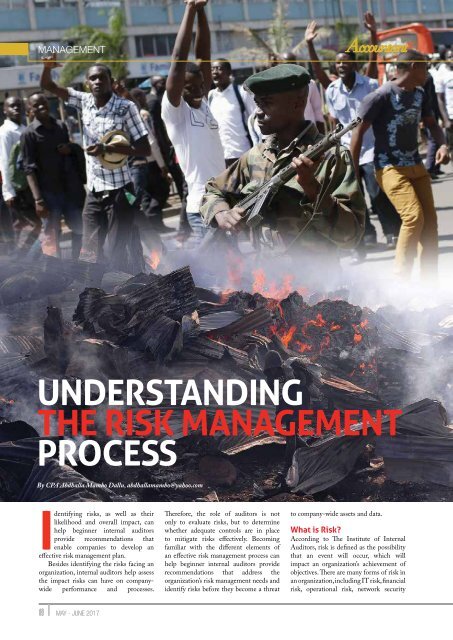The Accountant-May-June 2017
Create successful ePaper yourself
Turn your PDF publications into a flip-book with our unique Google optimized e-Paper software.
MANAGEMENT<br />
UNDERSTANDING<br />
THE RISK MANAGEMENT<br />
PROCESS<br />
By CPA Abdhalla Mambo Dallu, abdhallamambo@yahoo.com<br />
Identifying risks, as well as their<br />
likelihood and overall impact, can<br />
help beginner internal auditors<br />
provide recommendations that<br />
enable companies to develop an<br />
effective risk management plan.<br />
Besides identifying the risks facing an<br />
organization, internal auditors help assess<br />
the impact risks can have on companywide<br />
performance and processes.<br />
<strong>The</strong>refore, the role of auditors is not<br />
only to evaluate risks, but to determine<br />
whether adequate controls are in place<br />
to mitigate risks effectively. Becoming<br />
familiar with the different elements of<br />
an effective risk management process can<br />
help beginner internal auditors provide<br />
recommendations that address the<br />
organization’s risk management needs and<br />
identify risks before they become a threat<br />
to company-wide assets and data.<br />
What is Risk?<br />
According to <strong>The</strong> Institute of Internal<br />
Auditors, risk is defined as the possibility<br />
that an event will occur, which will<br />
impact an organization’s achievement of<br />
objectives. <strong>The</strong>re are many forms of risk in<br />
an organization, including IT risk, financial<br />
risk, operational risk, network security<br />
18 MAY - JUNE <strong>2017</strong>

















